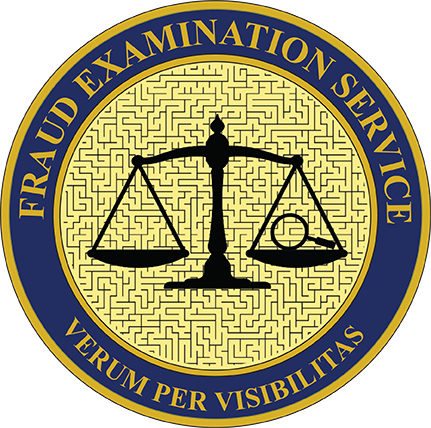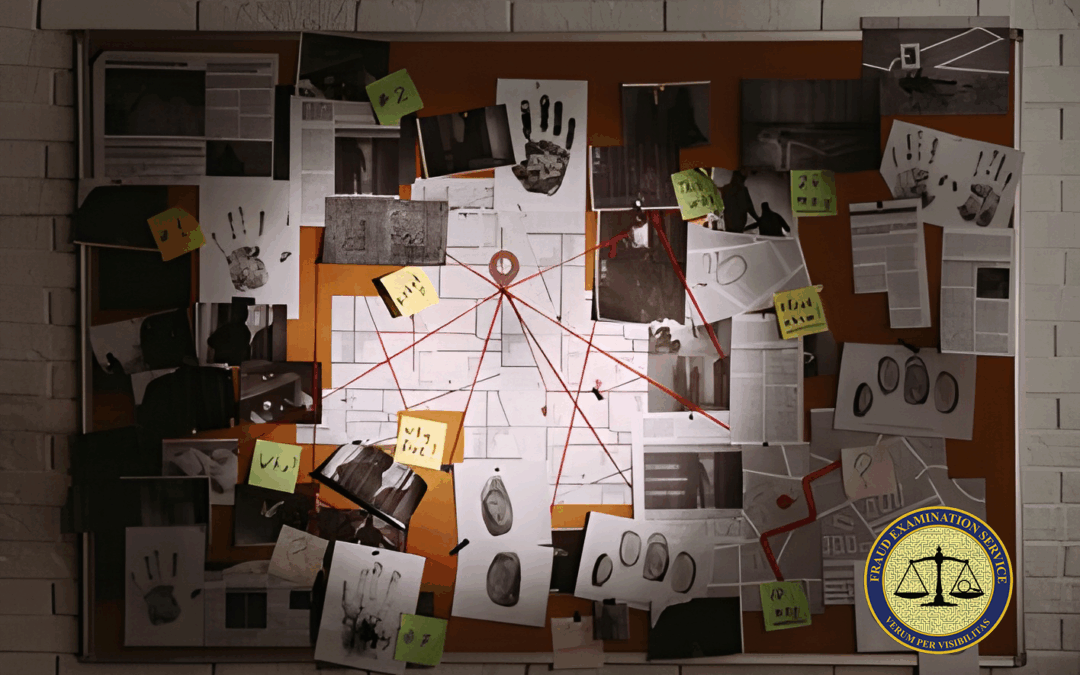Florida’s private investigation profession is tightly regulated to protect both investigators and the public. Under Section 493.6101(17), Florida Statutes, “private investigation” is expressly defined, and any evidence‐gathering activity must fall within those statutory boundaries. This article explores the legal framework governing private investigation, the core methodologies for gathering admissible evidence, how these services support Certified Fraud Examiners (CFEs), additional licensed offerings, and the ethical safeguards that ensure findings remain neutral and defensible.
Regulatory Framework
Definition of “Private Investigation”
Section 493.6101(17) defines private investigation as obtaining information on topics such as:
- Crimes or threats against the United States or any state
- An individual’s identity, conduct, reputation, or whereabouts
- Credibility of witnesses or other persons
- Location or recovery of lost or stolen property
- Causes and origins of fires, losses, accidents, or injuries
- Securing evidence for civil or criminal trials
Any activity outside these categories can trigger disciplinary action by the Florida Department of Agriculture & Consumer Services. You can review the full statute here.
Licensing and Scope
Florida issues three main license classes for private investigation:
- Class C (Private Investigator): Individuals conducting investigations.
- Class MA (Agency): Businesses employing Class C investigators.
- Class CC (Intern): Unlicensed trainees working under direct supervision.
Exemptions include sworn law-enforcement officers, attorneys conducting investigations for their clients, and certain insurance adjusters—each operating under their professional regulations rather than Chapter 493.
Evidence Gathering Methodologies
To support rigorous fraud or litigation work, investigators employ multiple techniques—each carefully calibrated to comply with state law and preserve evidence integrity.
Physical Surveillance
Surveillance documents subject movements and behaviors through:
- Stationary stakeouts: Monitoring specific locations.
- Mobile tracking: Discreet follow-ups on person or vehicle.
- Covert photography/video: Time-stamped recordings.
Investigators must avoid trespassing, stalking, or harassment. Proper signage, distance, and clear exit strategies ensure both safety and legality.
Witness Interviews & Public Records
Interviewing eyewitnesses or involved parties yields firsthand accounts. Best practices include:
- Voluntary, informed consent: Ensuring interviewees know their rights.
- Cross-verification: Comparing statements against public‐record documents (e.g., court dockets, property deeds).
- Background checks: Conducted in compliance with the Fair Credit Reporting Act when consumer‐report data is involved.
Public records in Florida are robust under the state’s “Sunshine Law.” Requests for meeting minutes, emails, or contracts often reveal critical threads in fraud or asset‐misappropriation investigations.
Digital Forensics
With most evidence now electronic, digital forensics is indispensable. Core steps include:
- Seizure & Imaging: Capturing an exact bit-for-bit copy of devices (computers, smartphones, servers).
- Analysis: Extracting emails, metadata, chat logs, and browsing histories.
- Reporting: Translating technical findings into clear, chronological narratives.
Maintaining a detailed chain of custody—often guided by standards outlined in resources like NIST’s Digital Forensics Framework—is critical to prevent challenges regarding data tampering.
Chain of Custody Protocols
Every piece of evidence must be:
- Logged: Time, date, and handler’s name recorded.
- Secured: Stored in tamper-evident packaging or encrypted digital vaults.
- Audited: Periodic checks to confirm nothing has changed.
A robust chain-of-custody process guards against allegations of contamination, ensuring that evidence remains pristine from collection through courtroom presentation.
Integration with Certified Fraud Examiner Activities
Private investigators and CFEs often collaborate, each bringing specialized expertise to fraud or dispute resolution cases.
Document Collection & Analysis
Investigators obtain invoices, bank records, contracts, and corporate documents—often via subpoena or consent. CFEs then dissect these records to:
- Identify unusual transactions
- Pinpoint timing discrepancies
- Flag unauthorized fund transfers
Transaction Tracing & Asset Discovery
By mapping the flow of funds, CFEs detect hidden or diverted assets. Private investigators support this by:
- Conducting property surveillance (e.g., real estate holdings)
- Reviewing vehicle registrations or vessel titles
- Interviewing insiders who might know about off-books accounts
Expert-Testimony Preparation
Together, PIs gather the raw evidence and CFEs shape it into courtroom‐ready exhibits. Reports emphasize factual findings, avoid speculative language, and include visual aids (charts, timelines) that make complex data accessible to judges and jurors.
Additional Regulated Services
Beyond core investigations, Florida licensure under Section 493.6101(17) permits related professional services when properly authorized.
Risk Assessment & Mitigation Planning
Consultants evaluate an organization’s vulnerabilities—controls gaps, governance weaknesses, and fraud-risk exposure—and recommend corrective frameworks to strengthen internal oversight.
Bodyguard & Personal Protection
Licensed agencies may offer executive protection, ensuring that personnel and assets remain secure. This service adheres to additional insurance and training requirements under Florida security-officer regulations.
Intern Training Programs
Agencies holding a Class MA license can deliver a 40-hour training program for Class CC interns. Curriculum covers ethics, surveillance tactics, report writing, statutory compliance, and basic digital-forensics principles.
Ethical and Legal Safeguards
To ensure findings remain neutral, transparent, and defensible, investigators embrace several critical safeguards.
Strict Statutory Adherence
Every investigative task is cross-checked against Section 493.6101(17)’s authorized activities. Any deviation is documented, justified, or halted to avoid regulatory or legal repercussions.
Data Security & Confidentiality
Investigators employ:
- Encrypted storage for digital files
- Access controls to limit evidence handling
- Secure disposal protocols for sensitive materials once cases conclude
These measures protect client privileges and guard against data breaches.
Neutral Reporting Practices
Reports focus strictly on verifiable facts—dates, times, documented behaviors—without editorializing or advocacy language. This impartial tone ensures evidence cannot later be characterized as biased or self-serving.
Next Steps
Florida’s private investigation profession, defined by Section 493.6101(17), Florida Statutes, plays a pivotal role in unearthing the facts behind complex disputes and fraud allegations. By combining lawful surveillance, meticulous public-records research, advanced digital-forensics, and iron-clad chain-of-custody procedures, investigators gather the objective data that Certified Fraud Examiners need to analyze financial irregularities and testify credibly. Licensed agencies extend these capabilities through risk assessments, protective services, and structured training programs—always operating within a robust ethical framework to preserve neutrality and ensure findings withstand judicial scrutiny.
For more on how our Private Investigation Services can support your fraud examination or litigation needs, visit our Services page or call us at 01 (727) 470-0960.
FAQs: Private Investigation Services Under Florida Statutes Section 493.6101(17)
What activities qualify as “private investigation” under Section 493.6101(17)?
Any evidence-gathering on crimes or threats, an individual’s identity or reputation, witness credibility, lost/stolen-property location, origins of fires or losses, or securing evidence for civil/criminal trials—as long as each activity stays within those statutory categories.
Which license classes govern private investigators in Florida?
– Class C (Private Investigator): Individuals conducting investigations.
– Class MA (Agency): Businesses that employ Class C investigators.
– Class CC (Intern): Unlicensed trainees under direct supervision of a Class C– or MA-licensed professional.
How is physical surveillance performed lawfully?
Investigators use stationary stakeouts, mobile tracking, and covert photography/video—but must avoid trespassing, stalking, or harassment by maintaining legal distance, clear exit strategies, and visible signage when required.
What steps ensure a secure chain of custody for evidence?
Every item is logged with time, date, and handler; stored in tamper-evident packaging or encrypted vaults; and periodically audited so there’s an unbroken record from collection through courtroom presentation.
How do private investigators support Certified Fraud Examiners?
PIs gather underlying documents (invoices, bank records, contracts), conduct property surveillance and interviews, then deliver raw evidence that CFEs analyze—tracing transactions, uncovering hidden assets, and preparing exhibits for expert testimony.
What additional services may a Class MA agency provide?
Beyond core investigations, a Class MA license allows agencies to run risk-assessment/mitigation engagements, offer executive/bodyguard protection under separate security-officer rules, and deliver the 40-hour Class CC intern training program.
Which ethical safeguards keep findings neutral and defensible?
Strict adherence to Section 493.6101(17)’s definitions, encrypted/confidential data handling, and fact-only reporting—avoiding advocacy or conjecture—ensure all results remain transparent, unbiased, and admissible under cross-examination.

